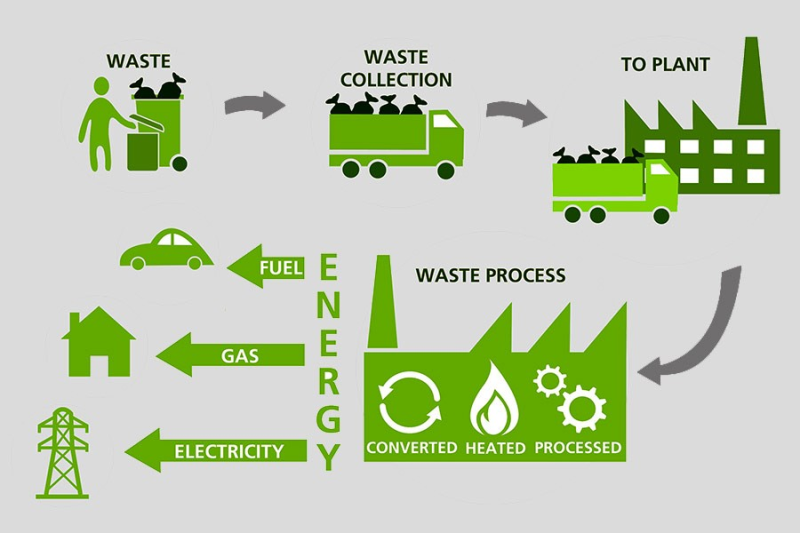- Body of Osman Hadi Returns to Dhaka From Singapore Late |
- Fakhrul condemns attacks on media, calls for unity, justice |
- 2 cops among 4 hurt in clash outside Indian Assit H.C. in Ctg |
- Inqilab Moncho urges people to avoid violence |
- Hadi’s death: Prothom Alo, Daily Star offices set afire |
Work on BD’s first waste-based power plant in Dhaka starts

Layout of the waste to energy plant being built in Dhaka. UNB
Dhaka, Jul 29 - After more than two years of contract signing, Chinese firm China Machinery Engineering Corporation (CMEC) has recently started the pilling works at the Aminbazar site in Dhaka to develop the country’s first ever waste-based power plant.
Bangladesh’s capital Dhaka, which generates over 6,500 tonnes of garbage every day, is expected to see a big change in garbage management once the country’s first proposed waste-energy plant in Aminbazar goes into operation.
Dhaka North City Corporation (DNCC) officials hoped that the CMEC will complete the power plant construction within the stipulated time to start the power generation from July 2026.
"The Chinese sponsor have mobilised huge equipment and manpower to implement the project within the deadline", Captain Mohammad Fida Hasan, Chief Waste Management Officer of the DNCC, told UNB.
They have been doing the pilling work round the clock, he added.
He admitted that the project was delayed due to delay in handing over of the site to the CNEC. "We had required huge time to prepare the land for the pilling works".
A source, however, claimed the funding crisis was another main reason behind the delay. The recent visit of the Prime Minister to China has played a vital role in expediting the financial closing of the project, it said.
According to official sources, the Dhaka North City Corporation (DNCC) and Bangladesh Power Development Board (BPDB) signed an agreement with the CMEC on December 1 in 2021 to set up the country’s first ever waste-based power plant.
The power plant will generate 42.5 MW of electricity from the garbage in the capital city.
Welcoming the deal, at that time LGRD and Cooperatives Minister M Tajul Islam said a new era will begin in Dhaka city’s garbage management with the implementation of the project.
As per the agreement, Dhaka city will supply 3,000 mts of solid waste to the project daily while CMEC will set up an incineration plant to generate 42.5 MW power and BPDB will purchase the electricity from the plant at US21.78 Cents, equivalent to Tk 18.295, per kilowatt hour (each unit) over the period of 25 year.
A number of associated agreements were signed between the parties to implement the projects under which the DNCC will also provide 30 acres of land to set up the incineration and power plant at Aminbazar in the city while the CMEC will complete the construction of the project and start commercial operation within 24 months from the financial closing.
Power Grid Company of Bangladesh (PGCB) will build required power transmission lines to evacuate electricity from the project.
Earlier, a Waste-to-Energy project was undertaken by BPDB in Keraniganj municipal area on pilot basis. But it was cancelled because of the high cost of electricity tariff - Tk40 per kilowatt hour - offered by the interested private firm.
Dhaka’s waste management challenge
Municipal solid wastes have been a great challenge all over the world today for their huge volumes. Bangladesh faces many challenges due to its large, rapidly growing population in urban areas. Bangladesh is the ninth most populous and 12th most densely populated country in the world. With this population growth, there is an increasing problem of waste management, particularly in larger cities.
Currently, according to an UNFPA report, Dhaka is one of the most polluted cities in the world and one of the issues concerned is the management of municipal waste.
Official sources said the idea for a waste-to-energy plant came into the forefront as the two dumping stations of DNCC and Dhaka South City Corporation (DSCC) at Aminbazar and Matuwail are going to be filled soon.
The Department of Environment also raised concerns about the existing waste management system because of environmental issues. - UNB

